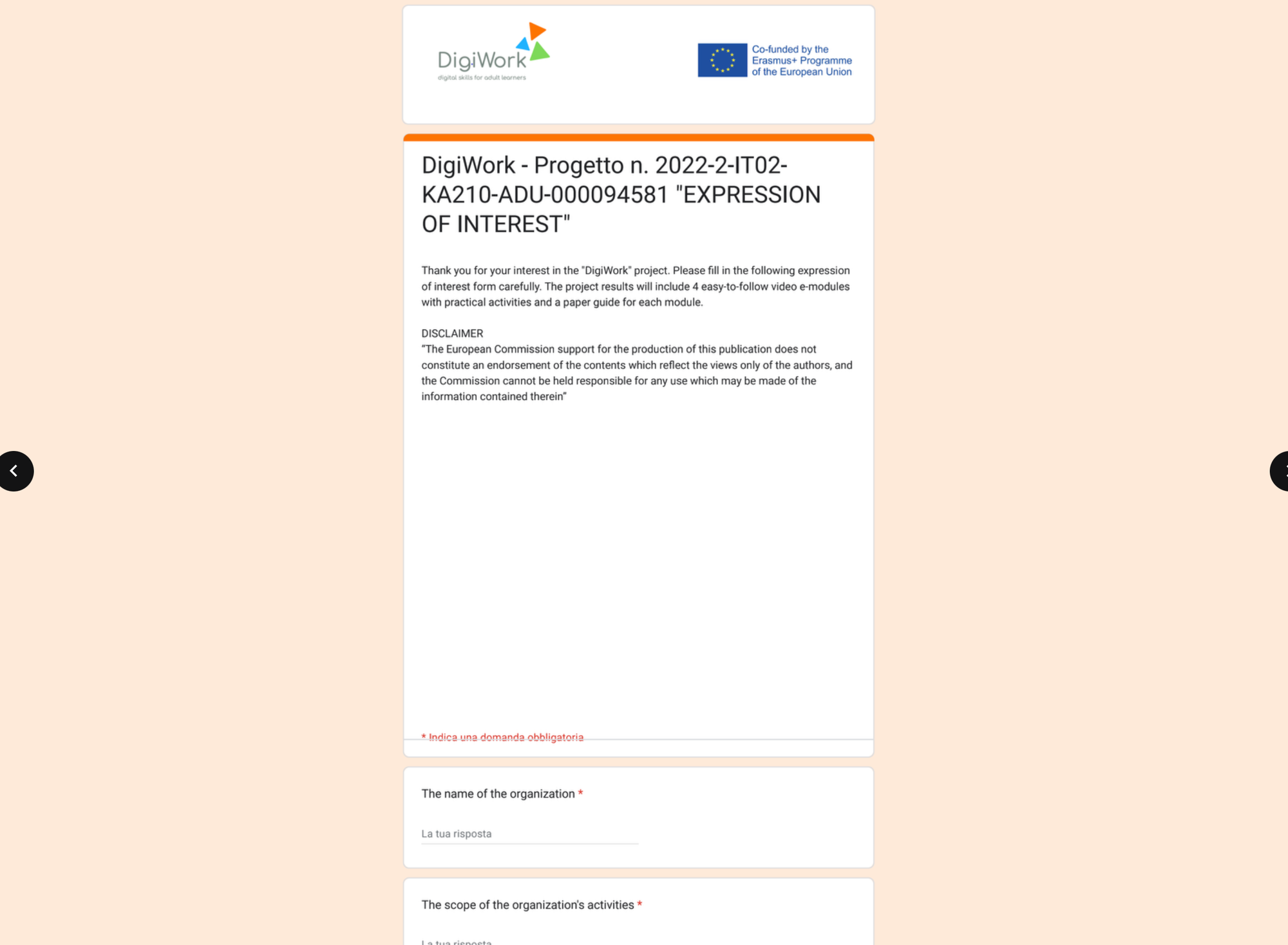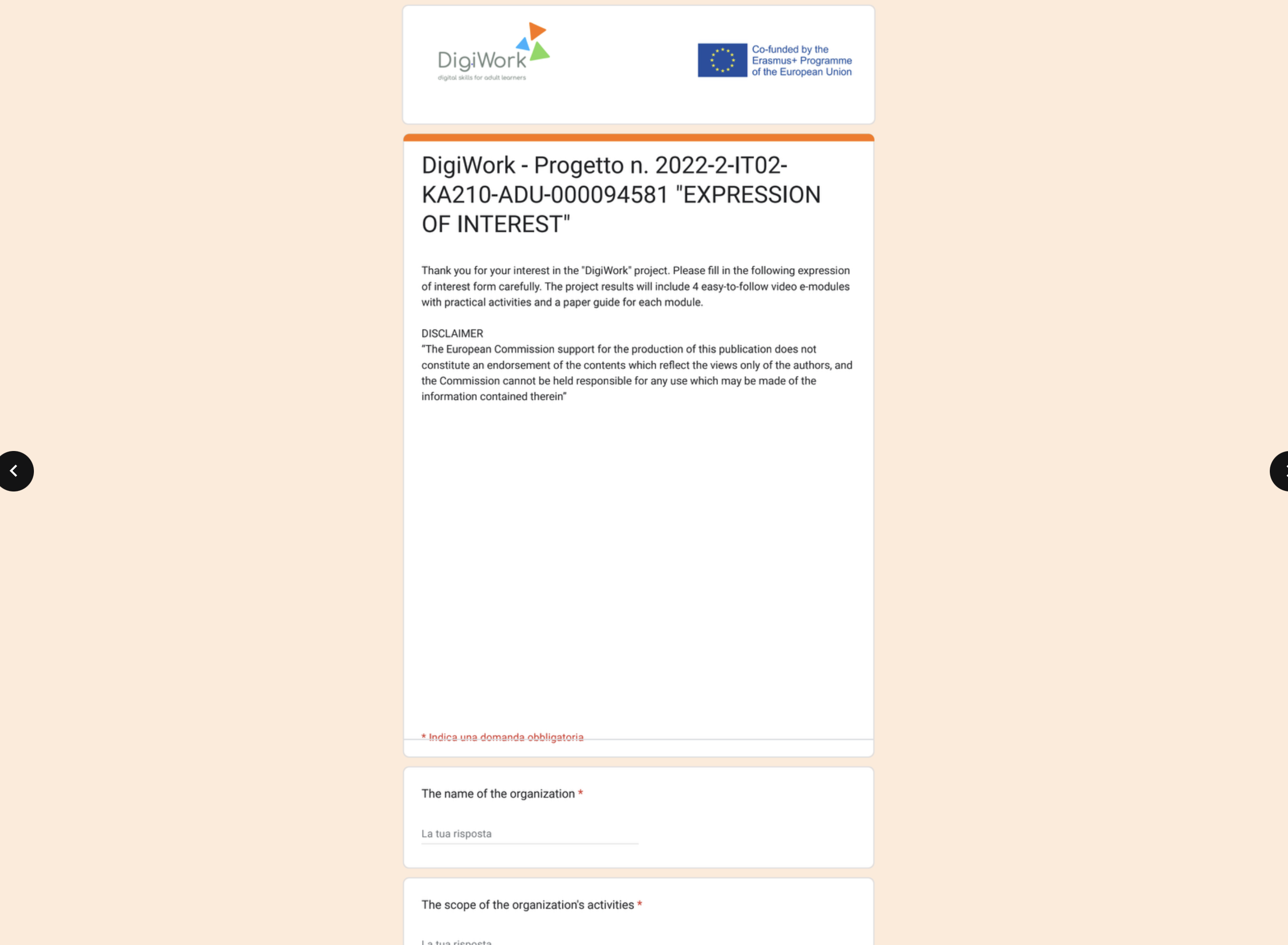Global Interest in DigiWork's Digital Training Modules: urly.it/310ma4

Three institutions—Sofia and Pescara Universities of the Third Age, and SEBRAE Brazil—express interest in adopting DigiWork's digital training modules!
The DigiWork project has successfully garnered significant interest from key educational institutions and organizations, reflecting the growing recognition of the importance of digital literacy among adults over 45. Through strategic communication efforts, the project team has attracted expressions of interest from three notable entities: the University of the Third Age in Sofia, the University of the Third Age in Pescara, and SEBRAE (Serviço Brasileiro de Apoio às Micro e Pequenas Empresas) in Brazil. These expressions of interest are a testament to the project's relevance and potential impact on adult education at both the local and international levels.
The process of securing these expressions of interest was rooted in a well-coordinated communication strategy that aimed to highlight the unique value of the DigiWork project. The project team focused on building relationships with institutions that share a common goal of enhancing adult education through digital skills development. This involved regular updates through newsletters, personalized email campaigns, and targeted outreach to potential partners who could benefit from the project’s outcomes.
1. University of the Third Age, Sofia The University of the Third Age in Sofia, Bulgaria, was among the first to express interest in the DigiWork project. This institution, which is dedicated to providing continuous learning opportunities for older adults, recognized the potential of the DigiWork video modules to enhance their existing curriculum. The university was particularly interested in the practical, self-paced nature of the e-learning modules, which align well with their commitment to accessible education for seniors. The communication with Sofia's University of the Third Age was established through direct outreach, followed by a series of virtual meetings to discuss potential collaboration.

2. University of the Third Age, Pescara Similarly, the University of the Third Age in Pescara, Italy, has shown a keen interest in integrating DigiWork’s digital training modules into their educational offerings. Pescara’s University of the Third Age has a strong focus on equipping older adults with the skills necessary to thrive in a digital world. They see DigiWork’s resources as an ideal complement to their programs, particularly because the modules are designed to be user-friendly and cater to learners with varying levels of digital proficiency. The partnership discussions with Pescara involved detailed presentations of the modules, followed by a positive response and intent to incorporate these tools into their programs.
3. SEBRAE, Brazil SEBRAE, a Brazilian organization known for its extensive work in supporting small and micro businesses, represents a unique and significant expression of interest. SEBRAE’s involvement is particularly noteworthy as it extends the impact of DigiWork beyond the traditional educational sector, into the realm of business support and entrepreneurship. SEBRAE identified DigiWork’s digital literacy modules as valuable tools for their training programs, particularly in enhancing the digital skills of entrepreneurs and small business owners. This interest was cultivated through targeted communication efforts, emphasizing the relevance of digital skills in today’s business environment and how DigiWork could support SEBRAE’s mission.
The expressions of interest from these three institutions underscore the broad appeal and applicability of the DigiWork project. By tailoring communication strategies to the specific needs and missions of these organizations, the project has successfully positioned itself as a valuable resource in the field of adult education and business support. Moving forward, these partnerships hold the potential to expand the reach of DigiWork’s resources, ensuring that more adults around the world can benefit from improved digital literacy and enhanced opportunities in both their personal and professional lives.This growing network of interested institutions not only validates the work done by the DigiWork team but also opens up new avenues for collaboration, further dissemination, and long-term sustainability of the project’s outcomes.